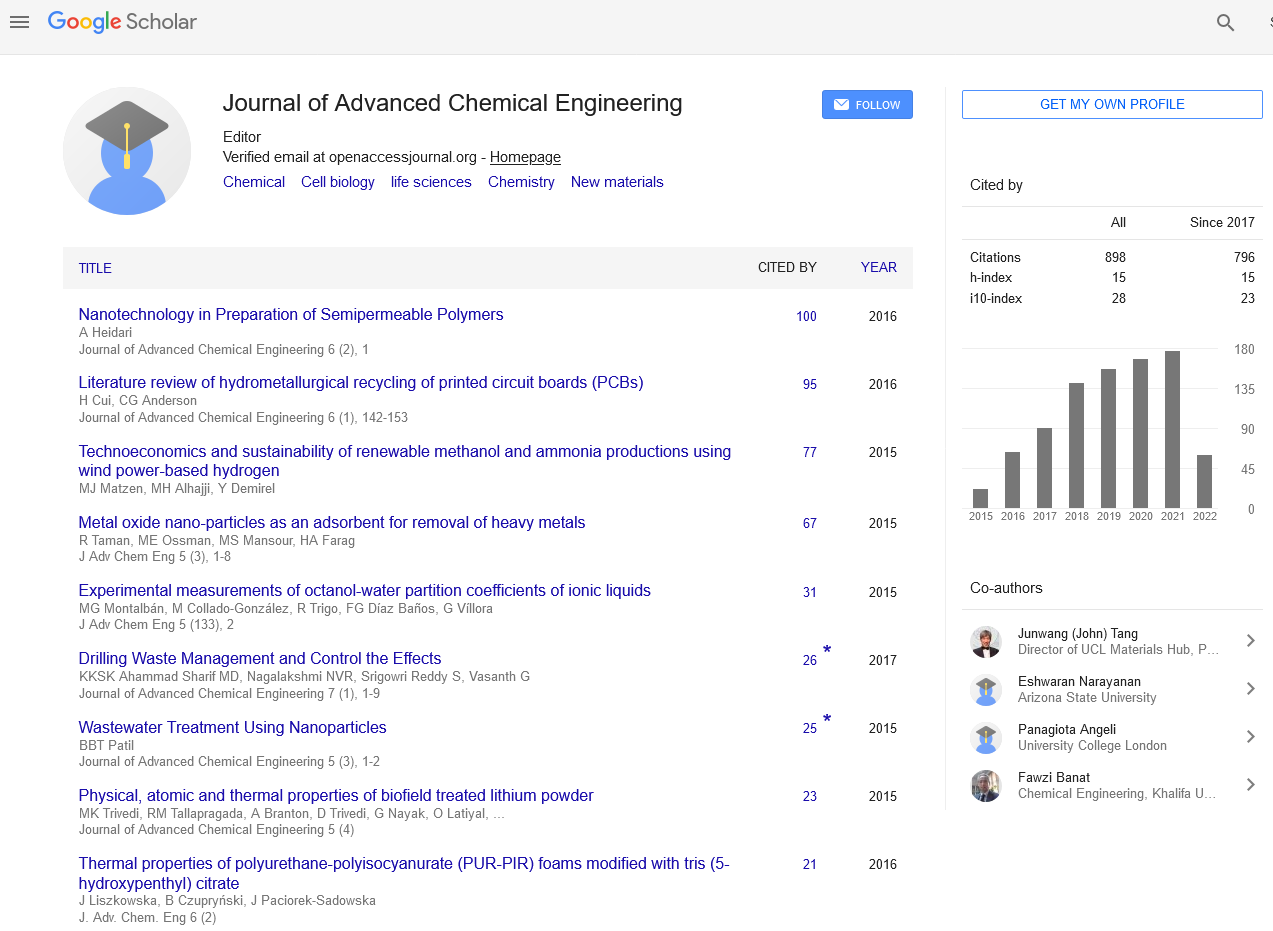Indexed In
- Open J Gate
- Genamics JournalSeek
- Smithers Rapra
- RefSeek
- Directory of Research Journal Indexing (DRJI)
- Hamdard University
- EBSCO A-Z
- OCLC- WorldCat
- Scholarsteer
- Publons
- Geneva Foundation for Medical Education and Research
- Google Scholar
Useful Links
Share This Page
Journal Flyer

Open Access Journals
- Agri and Aquaculture
- Biochemistry
- Bioinformatics & Systems Biology
- Business & Management
- Chemistry
- Clinical Sciences
- Engineering
- Food & Nutrition
- General Science
- Genetics & Molecular Biology
- Immunology & Microbiology
- Medical Sciences
- Neuroscience & Psychology
- Nursing & Health Care
- Pharmaceutical Sciences
Twisted polymeric fiber based actuators
Joint Event on 8th Edition of Biopolymers & Bioplastics & Polymer Science and Engineering Conferences
October 15-16, 2018 | Las Vegas, USA
Marcio Dias Lima
Nano-Science and Technology Center, USA
Scientific Tracks Abstracts: J Adv Chem Eng
Abstract:
It has been demonstrated that highly twisted polymeric fibers are also capable to generate impressive tensile actuation, providing large strokes and vastly exceeding the work and power capabilities of natural skeletal muscle. Contraction of over 50% and lifting capacity up to 270 pounds weight have achieved using a single coiled fiber. These actuators are also can operate as torsional motors: a thin fiber can rotate heavy rotors at up to 100,000 rpm for 1,000,000 cycles. Actuation can be driven by electrical signals or by relatively small variation in environmental temperature, which can be converted into mechanical work. That allows the use of these new actuators for automatic temperature and airflow control and natural light absorption or reflection in small and large structures such as residences and factory installations. Fig. 1 shows an example of environmental temperature control using only twisted polymeric fibers which are capable to open and close the roof a simulated greenhouse in order to regulate its internal temperature. Another field of applications is on soft-robotics: since these actuators are very flexible, capable to produce large tensile strength and easily assembled into arrays they are suitable for construction of soft manipulators, as shown in Fig. 2.
Biography :
Marcio Dias Lima is currently Chief Application Scientist at the Nano-Science and Technology Center, part of Lintec of America. Previously he worked as Research Scientist at Prof. Ray Baughman’s group at the Alan G MacDiarmid NanoTech Institute. He obtained his Dipl.-Ing. Degree in Materials Engineering from the Federal University of Rio Grande does Sul (Brazil) in 2001. At the beginning of 2005 to 2007 he became a member of Dr Roth research group at the Max Plank Institute of Solid State Research in Germany as visiting PhD candidate. Research interests include artificial muscles, synthesis of carbon nanotubes, development of hybrid carbon nanotubes yarns and sheets for energy conversion and storage, high strength composites and nanostructured transparent and conductive films. He has 50 refereed publications (4385 citations, H-index 31) and 6 issued patents
E-mail: marcio-lima@lintec-nstc.com


